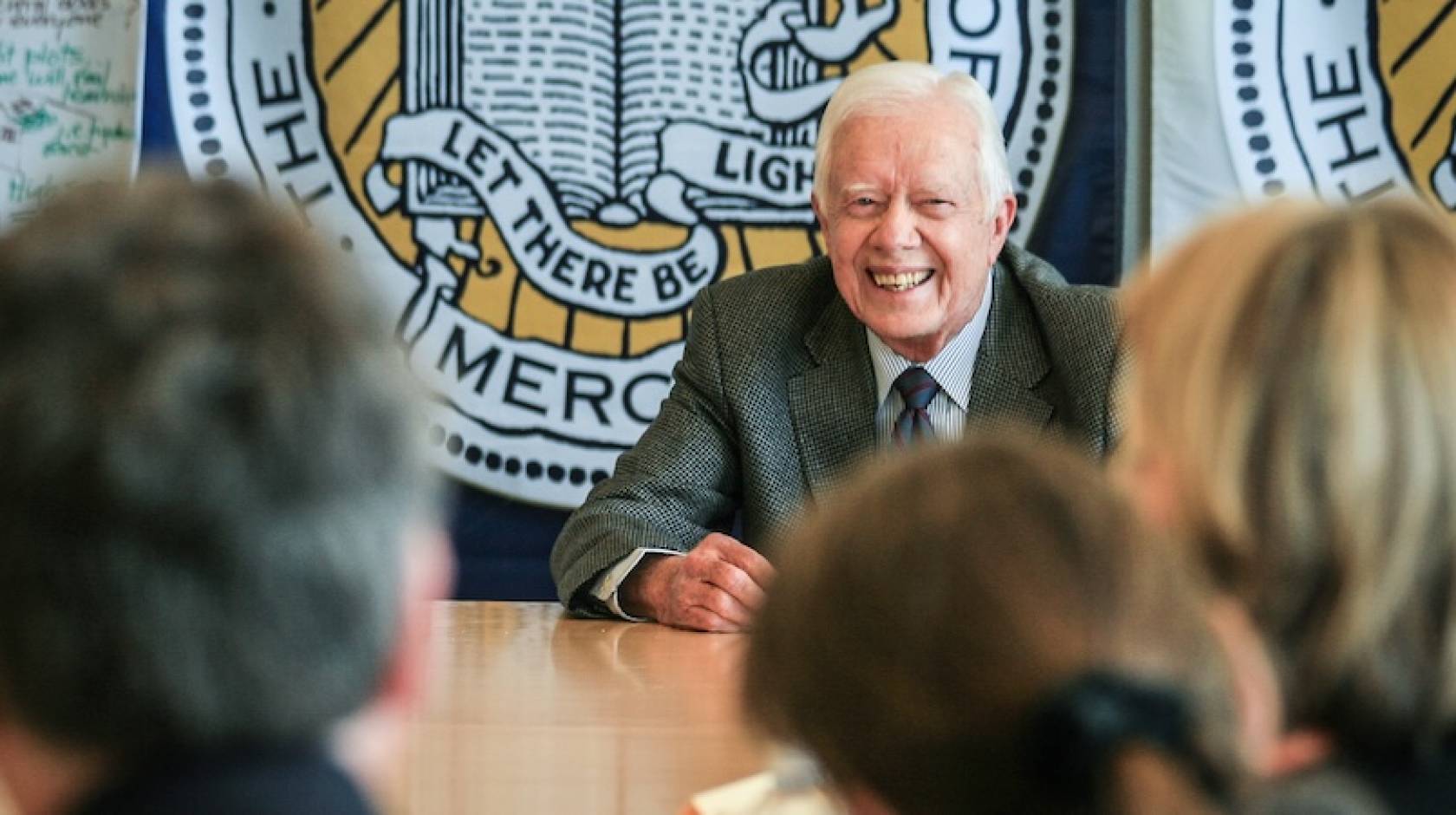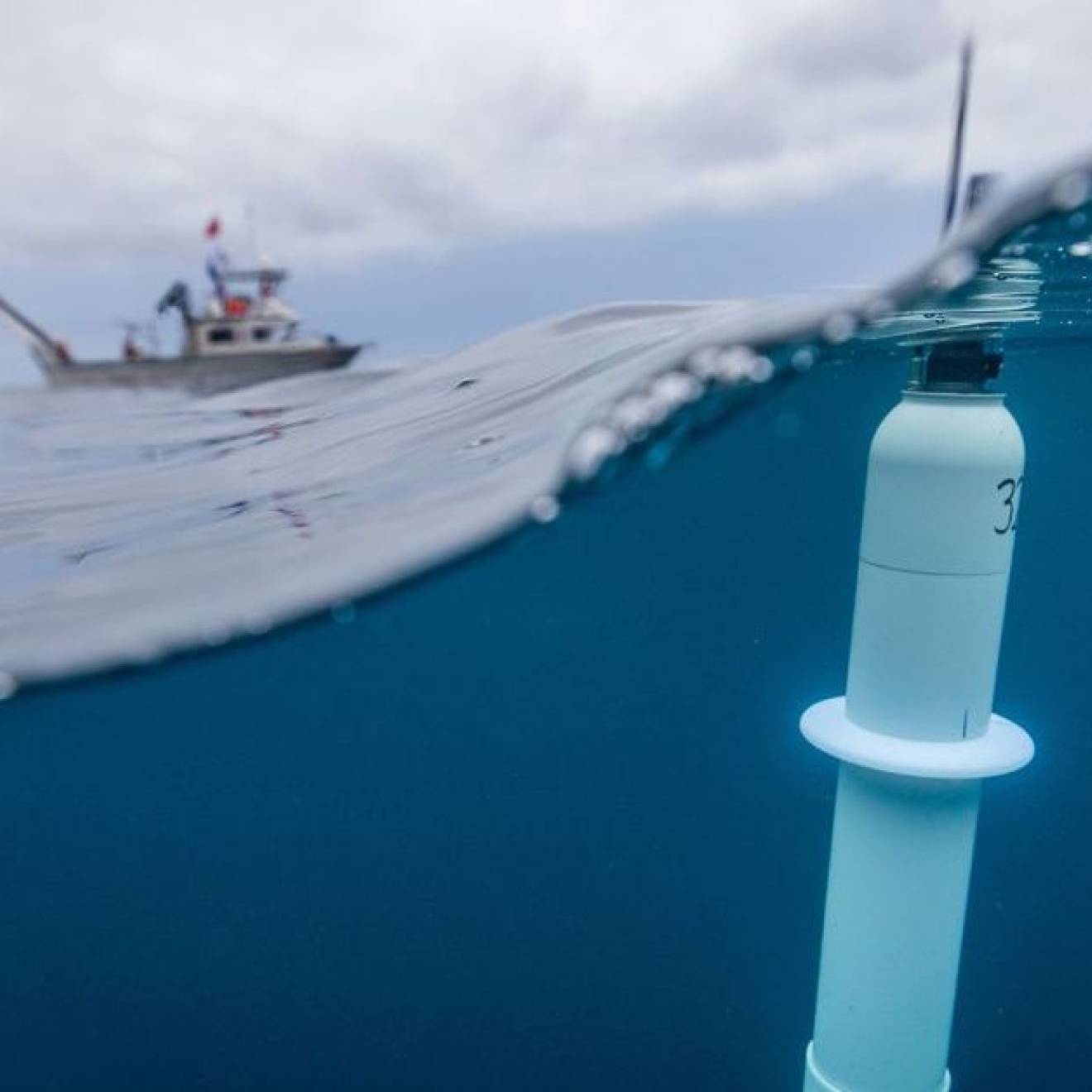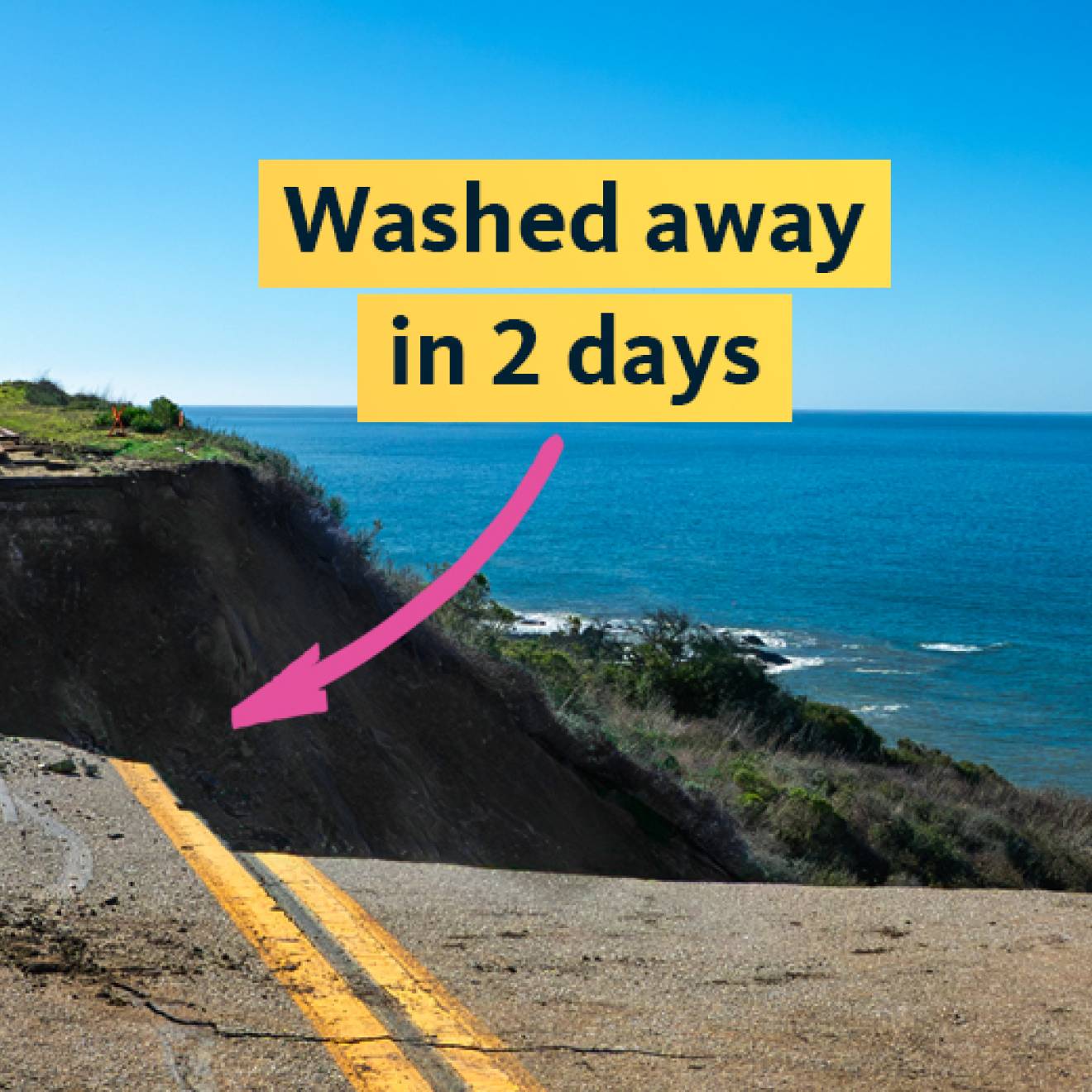Patty Guerra, UC Merced

In 2010, former President Jimmy Carter made his way to a young University of California, Merced campus to accept the Spendlove Prize in social justice, diplomacy and tolerance and to speak to the National Parks Institute.
"This is an honor for me," the president said, according to news accounts of the event. "The fact is human rights should encompass all those things, the basic freedoms that we cherish because of our constitutional commitments and the right of people to live a decent life."
President Carter died Dec. 29. He was 100. President Joe Biden declared today, Jan. 9, a National Day of Mourning.
"I call on the American people to assemble on that day in their respective places of worship, there to pay homage to the memory of President James Earl Carter Jr.," Biden said. "I invite the people of the world who share our grief to join us in this solemn observance."
Among those remembering the former president are the organizers of his appearance at UC Merced, just a few years after the campus opened.
Director Steve Shackelton invited Carter to be the keynote speaker at the 11-day National Parks Institute seminar, citing his signing of the Alaska National Interest Lands Conservation Act in 1980 and other works of the Carter administration that still influence the management of parks and public lands.
But he had to invite Carter twice. The first time, the former president declined, saying he appreciated the opportunity but his speaking engagements were focused on his family. Shackelton wrote another letter, pointing out UC Merced's goal to serve students from all backgrounds in California as well as conservation leaders from around the world and recognizing the president's many contributions to the preservation of parks.
Carter responded with a hand-typed note that he would attend, Shackelton said.
The Spendlove Prize Committee awarded Carter that year for numerous reasons, said Sherrie Spendlove, who created the prize in honor of her parents. He was honored for his promotion of peace between Palestinians and Israelis, for his post-presidency work through The Carter Center for monitoring safe and fair elections around the globe, and his efforts in advancing such causes as Habitat for Humanity, in which he and his wife, Rosalynn, were active participants for decades.
"President Carter's greatest legacy was how he cared for the common good of all the people of the United States while he was president and how he also cared for the well-being of the people of the world post-presidency," Spendlove said. "His constant search for peace and justice for everyone made him a beacon of light for all. I am eternally grateful to have basked in that light for even some precious moments."
While on campus, the former president engaged in an hours-long discussion with students, Shackelton said, and challenged them to accomplish great things. Many of those students have gone on to park service positions around the world.

